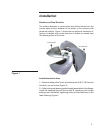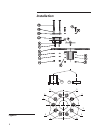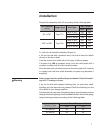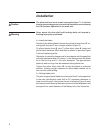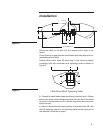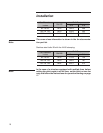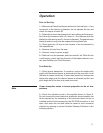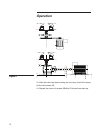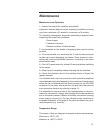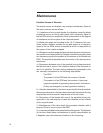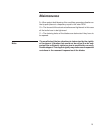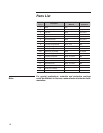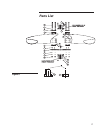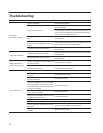
14
Maintenance
Possible Causes of Vibration
The actual causes of vibration may change considerably. Some of
the most common are as follows.
1–– Unbalance of one or more blades: the vibration caused by blade
imbalance occurs on the tip path plane with a frequency equal to
the fan RPM and at an amplitude which is dependent on the degree
of imbalance and the square of the rotational speed.
2––Blade pitch angle not included in the ± 0.5° tolerance: this con-
dition causes vibration outside the tip path plane at a frequency
equal to the fan RPM and at an amplitude which is dependent on
the square of the rotational speed.
3–– Blades too close to supports (periodic aerodynamic turbulence):
this condition is characterized by vibration outside the tip path plane
at a frequency equal to the product of the number of fan blades and
RPM. The amplitude depends upon the extent of the aerodynamic
turbulence.
4––Resonance between one of the possible forcing frequencies of
the fan and one or more of the vibration modes of the structure on
which it is installed. The main forcing frequencies generated by the
fan, normally correspond to the following frequencies:
- Fan RPM
- The product of fan RPM and the number of blades
- The product of fan RPM and the number of structural
supports capable of generating aerodynamic turbulence
(if they are arranged in an axial-geometric fashion).
5–– Vibration transmitted by the structure on which the fan is installed:
the frequencies of such vibration depend on both the external forcing
frequencies and the resonant frequencies of the structure.
6––Resonance of the blades with one of the possible forcing fre-
quencies; in the vast majority of cases the vibration occurs outside
of the tip path plane.
7––Misalignment of the drive shaft: this generates vibration with a
frequency that is once or twice the RPM.
8––Loosening of blade and/or speed reducer fixing bolts. The behavior
of the rotor under these circumstances is totally unpredictable, as
it depends upon the extent and location of the loosening.



